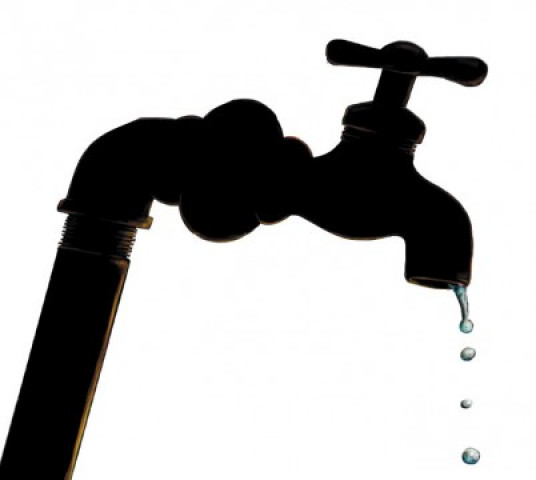Parts of Karachi ‘parched’ as Dhabeji pumps break down - again
Water board says that power supply was cut off intentionally and led to a leak.

Many parts of the city, especially Orangi, Baldia and Malir, faced a severe water shortage due to the breakdown at the key pumping station. Karachi faced a shortage of 40.7 million gallons per day. Its regular supply is 550 million gallons from this station.
The electric company demanded an impartial inquiry, saying that pumping stations have been exempted from the rolling blackouts which help manage demand across the city. “This is despite the fact that the water board has an outstanding bill of over Rs17 billion,” said the KESC spokesperson. “They still need to pay their monthly electricity bills, which range between Rs350 million to Rs400 million per month.”
The water board said, however, that the power supply to the Dhabeji station was cut off intentionally after which a 36-inch diameter pipeline started leaking. Repairs are expected to be completed by early Friday morning.
Behind the scenes
Since privatisation, the electric supply company has been trying to slash unpaid bills. It routinely cuts off the supply to rogue customers to ensure that those who do pay don’t suffer. But the water board has become a problem.
Under a deal with the government, KESC promised that it would not cut off strategic units, including pumping stations. But what will it do about the unpaid bills?
“Where do we get this money from? The only way is to charge consumers the real cost of water and we can’t do that,” said a senior official of the water board, adding that the electric supply company shares its cost of power by billing its clients. “The electric supply company has to persuade the government to come up with a solution as they will never listen to the bureaucrats of the water board.”
The best solution he could think of was a subsidy.
Karachi’s total water demand has surged to over 1,100 million gallons per day but the city receives only 435 million gallons per day because of leaks and theft.
Published in The Express Tribune, August 24th, 2012.



















COMMENTS
Comments are moderated and generally will be posted if they are on-topic and not abusive.
For more information, please see our Comments FAQ